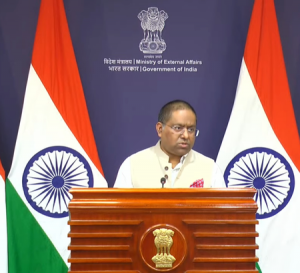New travel regulations in Spain could be disruptive for tourists as the country adopts a "Big Brother" approach.
Critics think the law is crazy.

The new legislation, which recently came into effect in Spain, has caused quite a stir in the travel industry. According to experts, the new registration system, which requires extensive personal data from tourists, could have a negative impact on the economy of the Balearic Islands. Many have compared the new rules to the concept of 'Big Brother' and have raised concerns about its potential effects.
Under the new rules, hotels, travel agencies, and car rental companies are now required to collect up to 42 pieces of personal information from each guest. This has raised concerns among critics who fear that tour groups may choose to avoid the Balearic Islands if they are required to provide such detailed information in advance. Pedro Fiol, the president of the Aviba Association of Travel Agencies in the Balearic Islands, has been a vocal critic of these rules, stating that it is not feasible for companies to provide such information so far in advance.
He explained, "For example, when a company books a hotel for an event, they do not know the exact details of who will be attending. How can they be expected to provide over 40 pieces of information within 24 hours if they do not have confirmed names? The same goes for sports teams, whose reservations are often made months or even years in advance based on projections, not confirmed names." The potential loss of these large group bookings, which tend to bring in more revenue during the medium or low season, could have a significant negative impact on the economy of the Balearic Islands.
The Mallorca Hoteliers Federation has also expressed concerns about the new requirements, stating that they present a high level of legal uncertainty and could potentially violate the privacy of tourists. They have also raised concerns about the risk of data leaks. Prior to the new legislation, hotels in Spain would typically only ask for guests' ID cards or passports, but now the government has extended the list of required information.
The new rules are expected to be the strictest in the EU and apply to all individuals over the age of 14. This includes information such as full name, gender, nationality, passport number, date of birth, home address, mobile number, and email address. This information is then uploaded onto a platform that is shared with Spanish security forces.
However, the system reportedly crashed on its first day, causing chaos and inconvenience for both tourists and businesses. It is worth noting that individuals under the age of 14 are not required to provide this information, but adults traveling with them must explain their relationship. The Spanish government has defended its decision to implement these rules, stating that they are intended to crack down on organized crime.
However, the country's leading hotel association, Cehat, has launched a legal challenge against the rules. While Cehat has expressed its willingness to work with the government in the interest of security, they have raised concerns about potential breaches of customers' privacy. They have also pointed out that the new obligations may violate the EU's General Data Protection Regulation, which could result in even higher fines than the proposed 30,000 euros for non-compliance.
In addition, Cehat has also highlighted the potential for significant delays in the check-in process for tourists, especially during peak times. The group's secretary-general, Ramón Estelella, has stated that Spain is currently the only country in the EU where hotels are required to send guests' ID information to the police. The implementation of these new rules comes after a year of anti-tourism protests in Spain and across Europe.
In October, thousands took to the streets of Madrid to protest against high house prices and the impact of holiday rental sites like Airbnb. Barcelona has also seen several demonstrations this year, with protesters demanding that tourists go home. The Canary Islands, a popular holiday destination, have also spoken out against over-tourism.
It is clear that the new legislation has sparked a heated debate and raised concerns among various groups. While the Spanish government maintains that it is necessary for security reasons, many are worried about its potential consequences on privacy and the economy. Only time will tell how these new rules will ultimately affect the tourism industry in Spain.
Do you have any thoughts or experiences to share? We'd love to hear from you. Please email us at [email].










